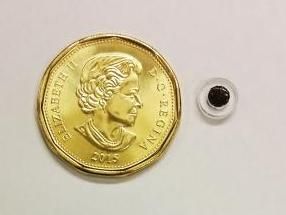Cell Genesys Announces Termination of VITAL-1 Phase 3 Clinical Trial of GVAX Immunotherapy for Prostate Cancer
Advertisement
Cell Genesys, Inc. announced its decision to terminate the VITAL-1 Phase 3 clinical trial of GVAX immunotherapy in patients with asymptomatic metastatic hormone-refractory prostate cancer. The trial was fully enrolled in 2007 with 626 patients and compared GVAX immunotherapy to Taxotere(R) (docetaxel) chemotherapy plus prednisone. The Company terminated the trial based on the results of a previously unplanned futility analysis conducted by the study's Independent Data Monitoring Committee (IDMC) which indicated that the trial had less than a 30 percent chance of meeting its predefined primary endpoint of an improvement in survival.
On August 27, 2008, Cell Genesys announced that it had requested the IDMC conduct a futility analysis of the VITAL-1 trial following the termination of VITAL-2, the Company's other Phase 3 trial of GVAX immunotherapy for prostate cancer. In view of the termination of both the VITAL-1 and VITAL-2 trials, the Company will place on hold the further development of GVAX immunotherapy for prostate cancer pending a review of the program with its collaborator, Takeda Pharmaceutical Co. Ltd. As a result of these circumstances, Cell Genesys will reduce its staff of 290 by approximately 75 percent by year-end with further reductions anticipated in the first half of 2009 as additional activities are phased out. As of September 30, 2008, the Company had approximately $150 million in cash and currently estimates that the year-end cash will be approximately $128 million. Personnel-related restructuring charges of approximately $12.8 million are expected to be incurred in the fourth quarter of 2008. The Company plans to provide updated financial guidance during its third quarter conference call in early November.
"We are, needless to say, extremely disappointed with the outcome of the futility analysis for the VITAL-1 Phase 3 clinical trial, but remain committed to learning as much as we can about the potential role for immunotherapy in the treatment of cancer. On behalf of the Cell Genesys management team, I would like to express my deep gratitude to the courageous patients who participated in this study as well as our committed clinical trial investigators and their teams," stated Stephen A. Sherwin, M.D., chairman and chief executive officer of Cell Genesys. "At this time I would also like to extend my heartfelt thanks to the hardworking and dedicated employees of Cell Genesys to whom we must now sadly say goodbye. The significant changes in our business which we are implementing today are painful but necessary, and will enable us to consider the appropriate strategic alternatives for our company."



























































